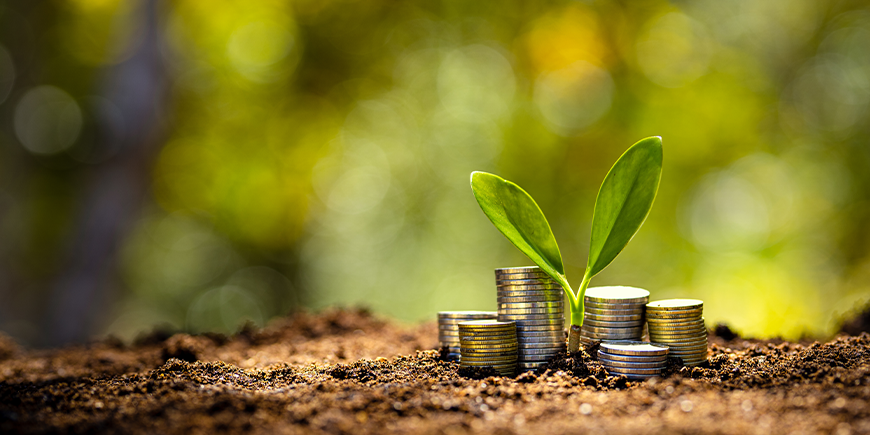The figures of the fourteenth GreenItaly report by the Symbola Foundation and Unioncamere Calabria.
Presentation of the fourteenth GreenItaly report by the Symbola Foundation and Unioncamere Calabria “An economy on a human scale against the crisis“, which documents the commitment of Italian companies to the green economy and the creation of green jobs.
Calabria is taking important steps towards becoming an increasingly sustainable economy, but much still needs to be done.
The GreenItaly report
The GreenItaly 2023 report, now in its fourteenth edition, is produced by the Symbola Foundation and Unioncamere, in collaboration with the Tagliacarne Study Centre and under the auspices of the Ministry of the Environment and Energy Security. Conai, Novamont, Ecopneus, the European Climate Foundation, numerous organisations and over 40 experts have contributed to the report.
According to the report, 510,830 companies in Italy have invested in the green economy in the last five years and there are 3.2 million green jobs.
Accelerating investment in the green transition and renewable energy gives strength to Made in Italy. – says Ermete Realacci, President of the Symbola Foundation – it also reduces medium-term costs for families and businesses and strengthens our energy independence. We are a European superpower in the circular economy and this makes us more competitive and sustainable. The GreenItaly report shows an Italy that is moving towards a more human economy, focused on sustainability, innovation, communities and territories.
GreenItaly, with its figures and business stories,” says Andrea Prete, President of Unioncamere, “clearly highlights the commitment of the Italian production system to the green transition. Thanks to a trend in business investment towards environmental sustainability, we have been among the European eco-leaders for years. This is the case with renewable energy, which is essential for reducing our country’s energy imports and stabilising prices, the growth of which is often slowed down by bureaucratic obstacles’.
The numbers
In the five-year period 2018-2022, 510,830 companies made eco-investments, accounting for 35.1% of the total, or more than one in three.
In terms of employment, at the end of last year, professional figures related to the green economy accounted for 13.9% of total employment, or 3,222,000 units. In 2022, the contracts activated for these figures amounted to 1,816,120, 35.1% of the total contracts planned for the year (around 5.2 million), an increase of 215,660 units compared to the previous survey.
The business areas most affected by the total number of activations include design and development (87% incidence), logistics (81.7%) and marketing and communications (79.2%).
Looking more broadly at the demand for green skills and culture, in 2022 – out of a total of almost 5.2 million contracts expected in the labour market – this knowledge was deemed necessary in 81.1% of cases, for about 4.2 million contracts.
In Calabria
With 14,320 companies, Calabria ranks eleventh in Italy in terms of the absolute number of companies that have invested or will invest in green technologies within the year. They represent 35.1% of the total number of companies in Calabria. This figure is significant, although a comparison with other regions in northern and central Italy shows that there is still much to be done to accelerate this process.
The green companies in Calabria are distributed unevenly among the provinces. Cosenza, with 5,881 companies, is the province with the highest number of green companies in Calabria. It is followed by Reggio Calabria with 3,827, Catanzaro with 2,491, Crotone with 1,102 and Vibo Valentia with 1,022 green enterprises. These figures indicate that although Calabria is making progress, the adoption of sustainable practices in small and medium-sized enterprises could be further encouraged.
In terms of green jobs, the region is not far behind. In 2022, 30,000 green contracts will be activated in Calabria, with the province of Cosenza leading the ranking with 11,214 green jobs. This is followed by Catanzaro with 6,934 contracts, Reggio Calabria with 6,674, Crotone with 3,081 and Vibo Valentia with 2,275 green jobs contracts activated. The green economy is thus becoming an important source of employment, with a growing number of young people and professionals entering this market.
Overall, the green economy accounts for 13.9% of employment in Italy, equivalent to 3.2 million green jobs, a fast-growing sector that is crucial for the future of local economies and the creation of sustainable jobs.
Calabria, despite its difficulties, is trying to increase this percentage, thanks also to the efforts of local authorities and trade associations.


